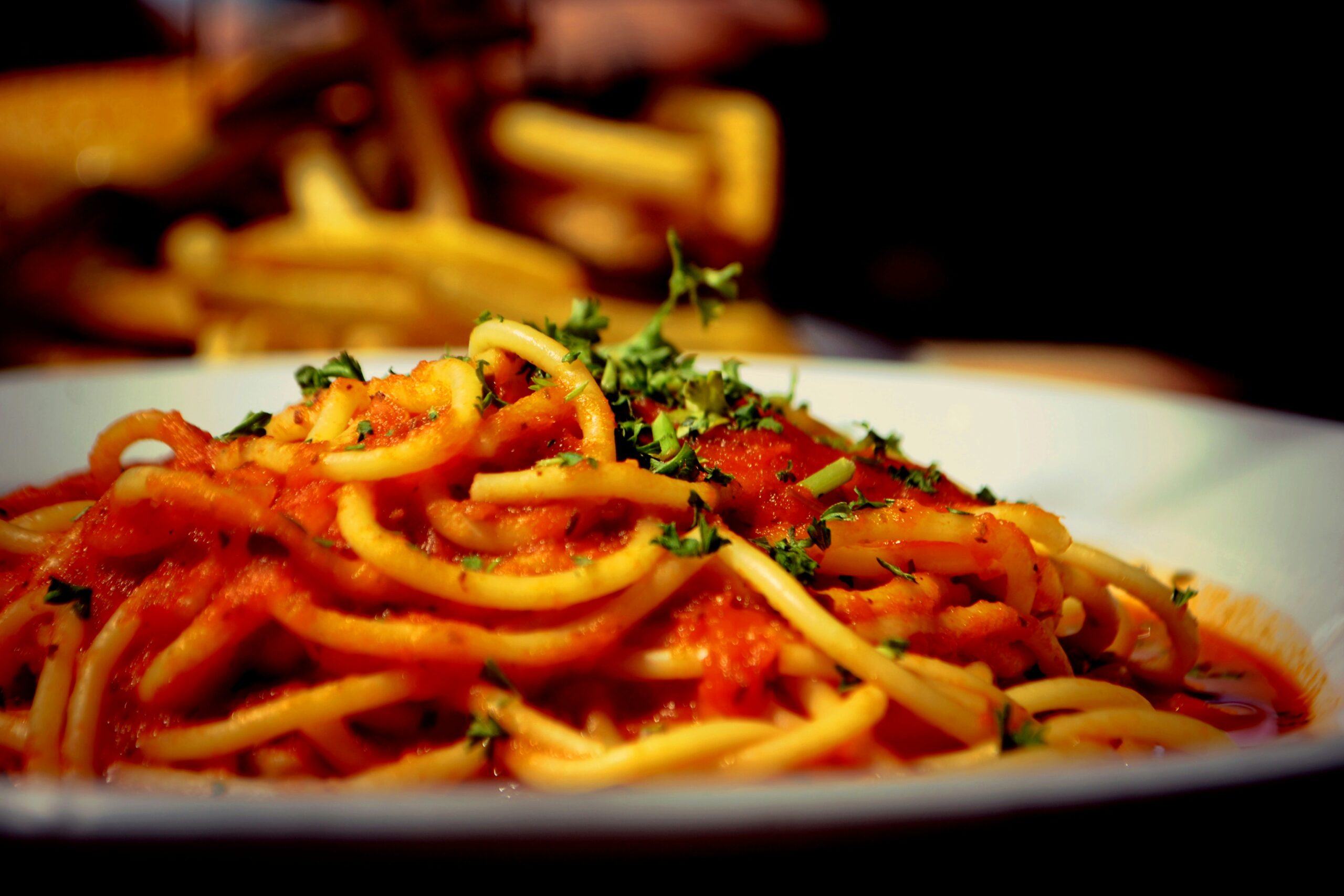
Zero Waste Pantry Pasta Recipe
Servings: 4 Ingredients 340g pasta (any variety you have on hand) 45ml olive oil (approx. 3 tablespoons) 3-4 cloves garlic, minced (or dried garlic powder if you don’t have fresh) 400g can of diced tomatoes
Adding science to FareShare’s recipe for nutrition
FareShare always strives to make every meal count nutritionally and is now applying science in collaboration with the University of Queensland to maximise the health benefits.
Helen Truby, Professor of Nutrition and Dietetics at UQ, says FareShare has an important niche in food relief by offering cooked, nutritious meals.
“The gap that FareShare can fill is adding vegetables which bring essential micro-nutrients into people’s diets. They are often not found in emergency food supplies. Vegetables provide micro-nutrients and phytochemicals and also dietary fibre, which is very important for gut health.
When people don’t have access to good nutrition, their health and wellbeing declines.
Helen Truby, Professor of Nutrition and Dietetics at University of Queensland
“When people don’t have access to good nutrition, their health and wellbeing declines,” says Prof Truby, also an advanced practising dietitian. “We know that people who have access to a healthy diet which provides adequate micro-nutrients are much less vulnerable to chronic conditions such as type 2 diabetes.”
Prof Truby and her students in the Master of Dietetics have been working closely with FareShare’s Brisbane team, including Director Kellie Watson, Production Manager James Fien and First Nations Officer Jason Mollenhauer.
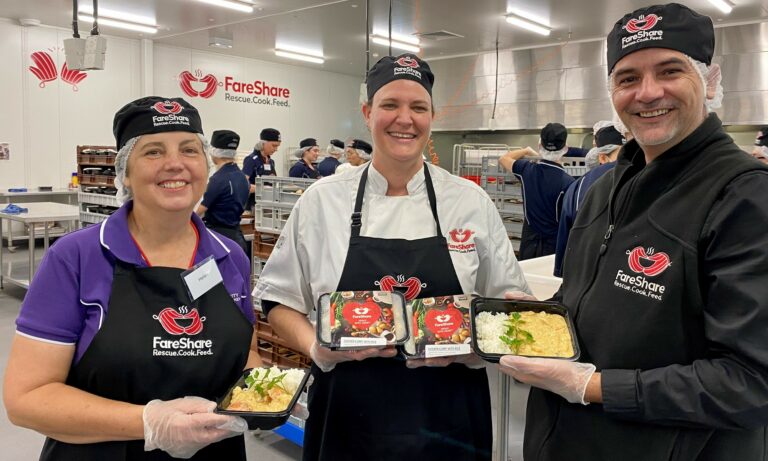
“We want to improve our literacy in nutrition and ensure our chefs and kitchen staff cook the best possible meals with the ingredients available,” says Kellie Watson.
“The relationship with UQ has given us access to nutrition and dietetics advice to help us maximise the impact of our meals.”
As Prof Truby explains, people experiencing disadvantage tend to have access to foods that fill you up but are very high in energy – notably fat, sugar and salt – and low in micro-nutrients. “Over time people become deficient in micro-nutrients which impacts on their overall health.”
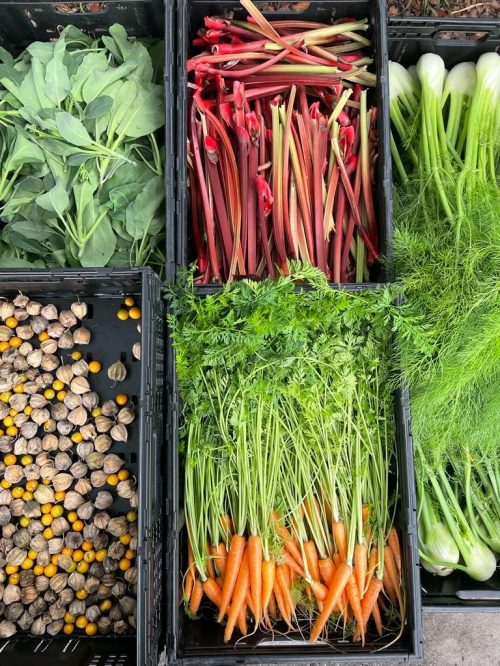
This can be particularly true in regional and remote areas, such as First Nations communities where FareShare, Prof Truby and her UQ students have worked closely with communities to develop culturally-appropriate, master recipes that pack a big nutritional punch.
“Sometimes in remote communities the quantity and variety of food can be quite small and people eat the same things a lot of the time,” says Prof Truby. “We know that one of the key dietary guidelines is to eat a wide variety of foods. The more variety you have, the more chances you have of getting all the micro-nutrients that you need.”
Fresh fruit and vegetables are expensive and hard to access in remote areas creating a disproportionately-high risk of poor health outcomes. FareShare aims to address this by providing nutritious meals with a high vegetable content.
“The meals must be very tasty, have plenty of flavour but without adding lots of salt because we know that many Australians eat too much salt,” says Prof Truby.
“I would love to see communities be able to use these recipes that they helped to design and to cook the meals for themselves so that the FareShare meals become a conduit to self-sufficiency.”
The links between poor diet and mental health are becoming more understood and Prof Truby says this is an important area of new research.
“We never used to think that diet had a big impact on people’s mental health but it can for several reasons. First, if we can’t feed ourselves, and we can’t feed our families, it’s not only a source of stress but it can be a source of shame.
“We also now have a much better understanding of the nutritional requirements for the different types of fats, and vitamins and minerals that help us maintain better mental health.
“For those who are very dependent on snacks and junk food, the actual concept of having a proper meal can disappear as well. If you can feed people a nutritious meal with dignity, you can potentially impact many aspects of their wellbeing.
“I think the FareShare chefs do an amazing job and I love working with the team here in Brisbane.”
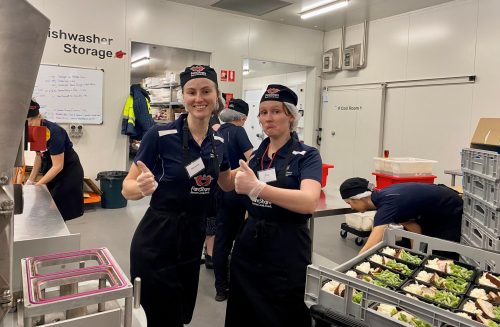
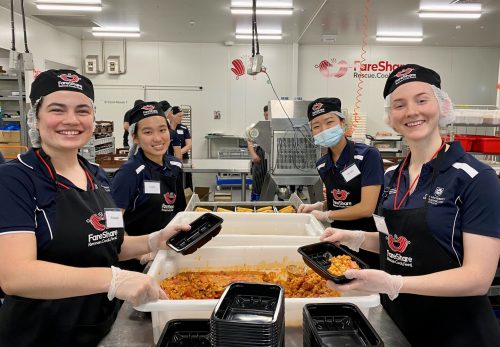

Servings: 4 Ingredients 340g pasta (any variety you have on hand) 45ml olive oil (approx. 3 tablespoons) 3-4 cloves garlic, minced (or dried garlic powder if you don’t have fresh) 400g can of diced tomatoes
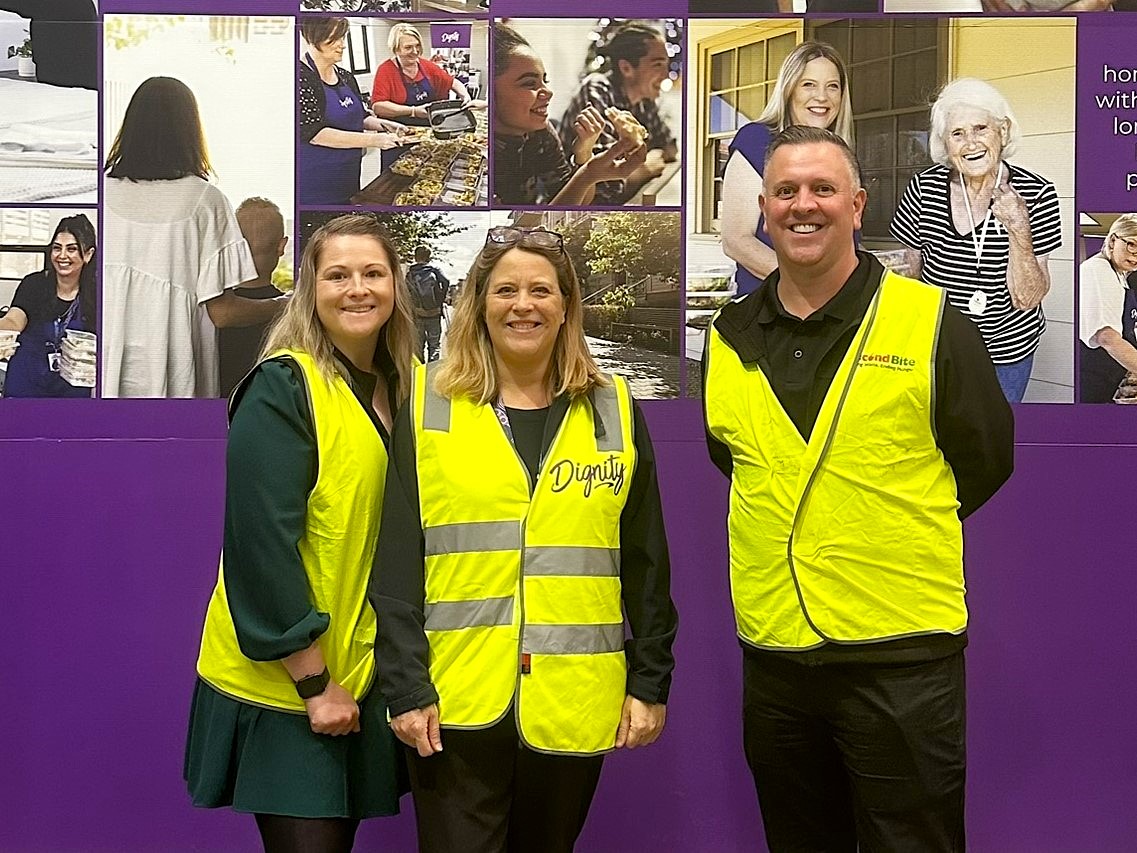
FareShare expands its reach to complement SecondBite produce at NSW homelessness support charity Dignity Capitalising on SecondBite’s extensive infrastructure and networks, which includes dozens of trucks and more than 1,000 charity partners, FareShare meals have
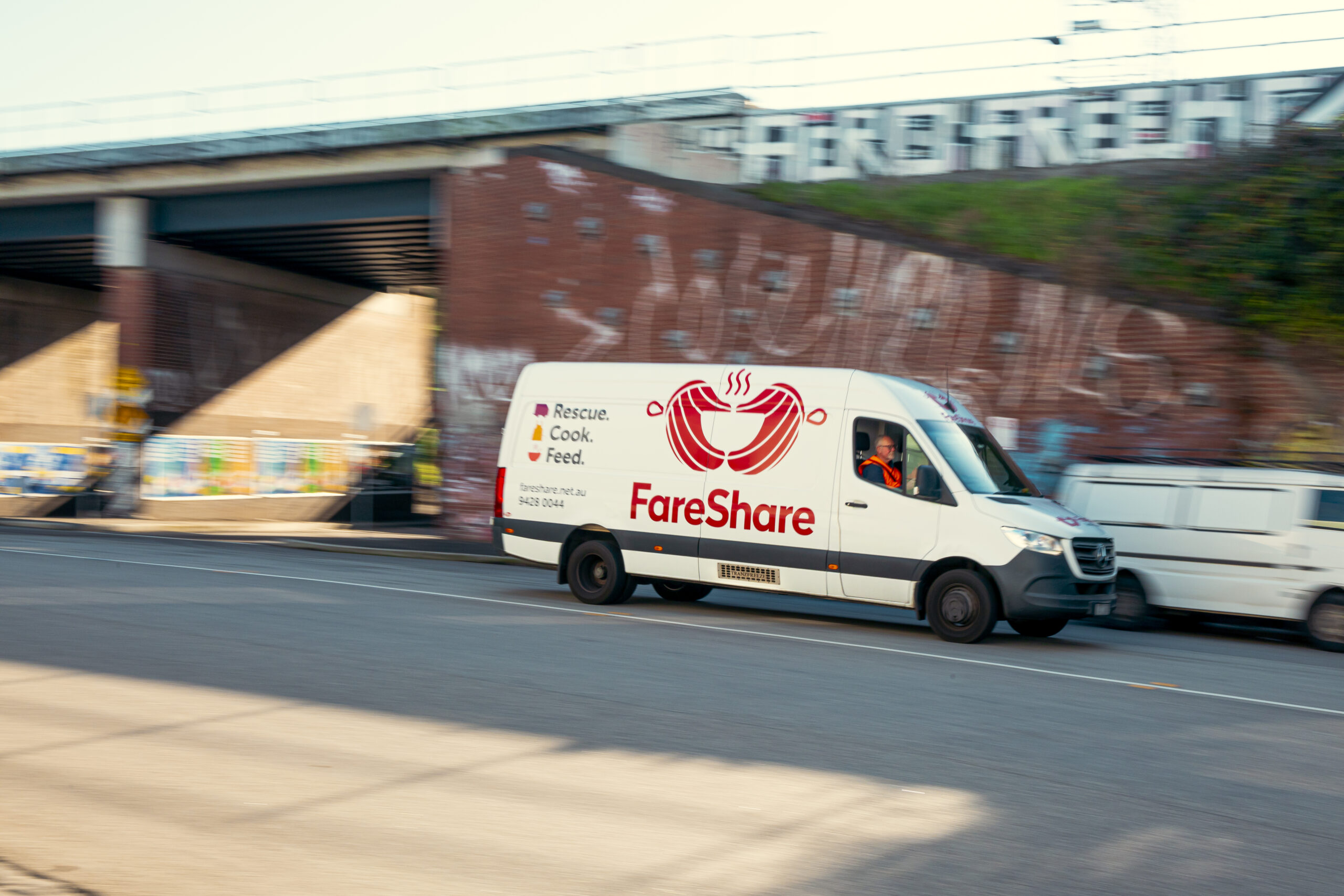
5 things FareShare is looking forward to in 2025 2025 is shaping up to be a big year for FareShare. Here are five things we are looking forward to: 1. Ramping up production in our